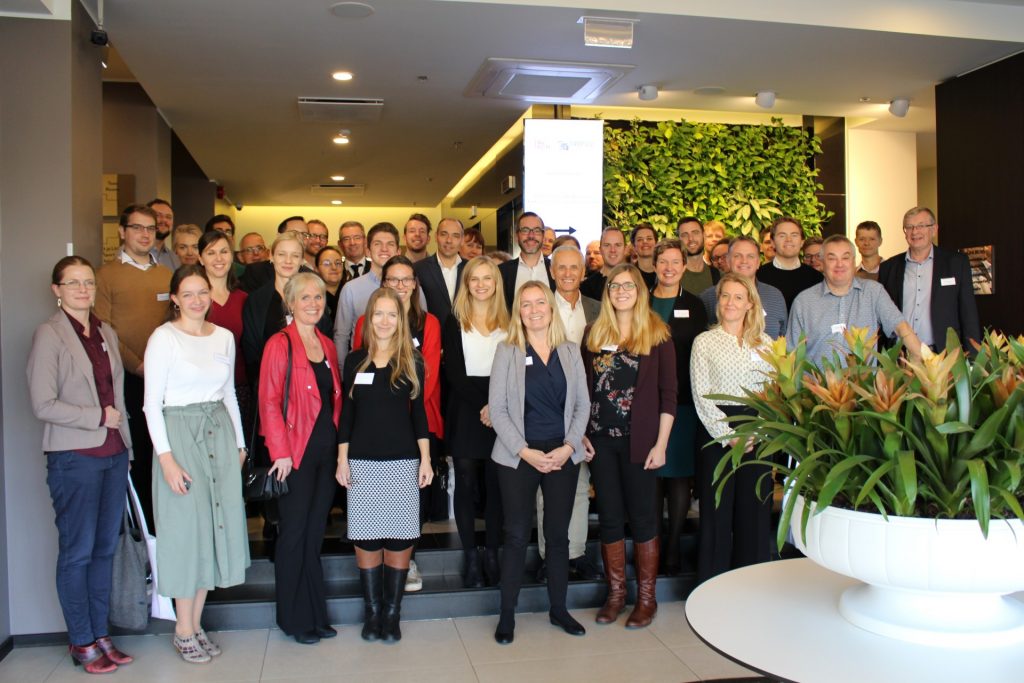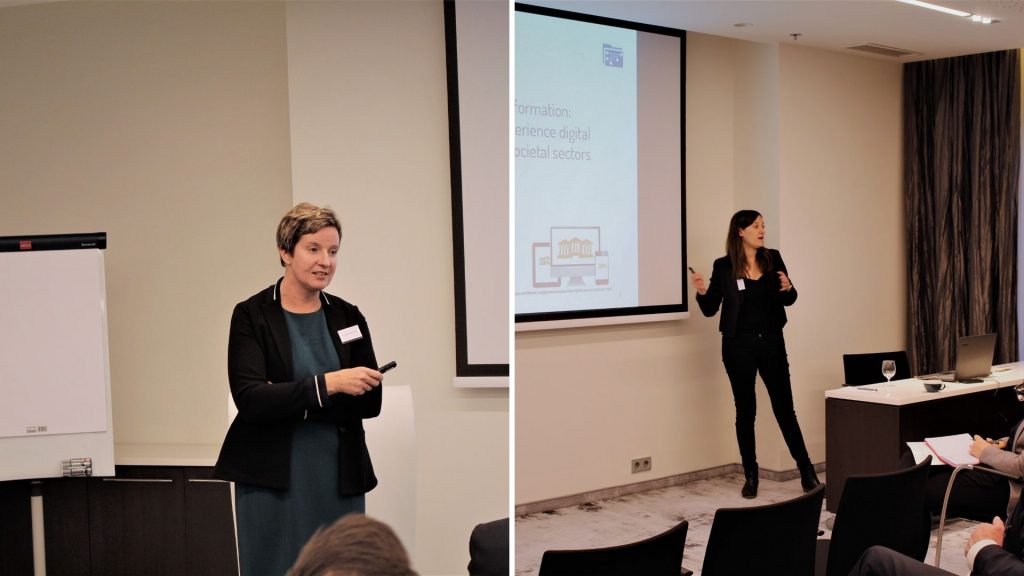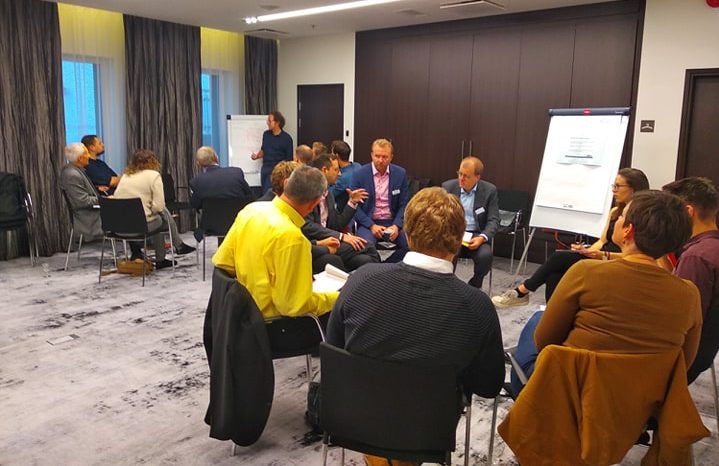Impressions from the first TROPICO Summit “Collaboration in the Digital Era: Evidence from European Governments”
4 Feb 2020 | Published by Tiina Randma-Liiv, Lise H. Rykkja & Karolina Poltorak

The TROPICO Summit 2019 entitled “Collaboration in the Digital Era: Evidence from European Governments” took place on 23-25 October 2019 in Tallinn, Estonia. Participants came from more than ten European countries and included TROPICO partners, External and Academic Advisory Board members, practitioners from public, business and non-profit sectors, scholars and representatives of other relevant projects. The aim of the Summit was to engage the participants to deliberate and discuss practices of internal and external collaboration in and by governments, and the use of digital tools to achieve such collaboration. The TROPICO team presented its research results through presentations, roundtables and panel discussions, and received input from practitioners as well as from other academics and the leaders of other similar research projects. The programme included keynotes from distinguished scholars as well as public sector practitioners and private sector representatives.

The main focus of the Summit was placed on internal and external collaboration for policy design, in particular on the ongoing research in Work Package 4: Practices of Internal Collaboration for Policy Design and Work Package 5: Practices of External Collaboration for Policy Design. Discussions revolved around drivers and barriers of innovative collaboration practices with a special emphasis on the use of information and communication technologies (ICT) and the impact of digitalisation.
The highlights of the Summit can be summarised in the following points:
- The keynote speakers introduced new and valuable perspectives on how we can understand society and the role of government in the digital era, showing that dominant narratives do not always grasp entirely the changes we observe in our research. Digitalisation can radically change the functions of the government, but systematic insights on to what extent this has and will take place, need to be pursued further.
- Presentations from the practitioners gave important “real-world” examples of both successful and not so successful practices related to collaboration and digitalisation, by that confirming the relevance of the TROPICO project and its research questions. Practitioners participating in the event contributed significantly to the discussions on the research connected to TROPICO and the project’s development. Their input will be of a great value for the upcoming activities in the project.
- The Summit was an especially enriching experience for young TROPICO researchers who had an opportunity to network with other scholars and practitioners, and to participate in discussions linking public administration, collaboration and digitalisation.

- The innovative “coffee table discussions” allowed for engaging discussions on the main findings, challenges and next steps of the work packages in smaller, rotating groups. These discussions were particularly well attended by participating public officials and junior researchers. The presenters were asked to prepare specific questions to the audience, in order to inspire fruitful interaction in the smaller groups.
- The concluding panel discussion involved introductions of three other Horizon 2020 projects that also link public administration and ICT, including TOOP, COGOV, CITADEL, and an Erasmus Mundus joint MA programme in Public Sector Innovation and eGovernance; PIONEER. Together with the representatives of the relevant projects, we explored the ways for building synergies through discussing challenges for the public administration in the digital era.
- Based on the experience and feedback gained during the Summit, future project events should make sure that gender balance is achieved to an even higher degree, assuring that female scholars and practitioners are represented in all slots. Also, future events should aim for even more participation from the private sector as well as EU level practitioners.
TROPICO Summit in Tallinn provided an excellent arena for academics, public officials and ICT practitioners to come together to share valuable experiences, views on future challenges and to learn from each other. Such arenas promise great potential for further deliberation and development of a growing research field and an increasingly important topic – the transformation of governments in the digital era towards more openness, innovation and collaboration. We look forward to continuing this discussion during the second TROPICO Summit in Antwerp in fall 2020, which will focus on Work Package 6: Practices of Internal Collaboration for Service Delivery and Work Package 7: Practices of External Collaboration for Service Delivery.
See more detailed information on the first TROPICO Summit here.
